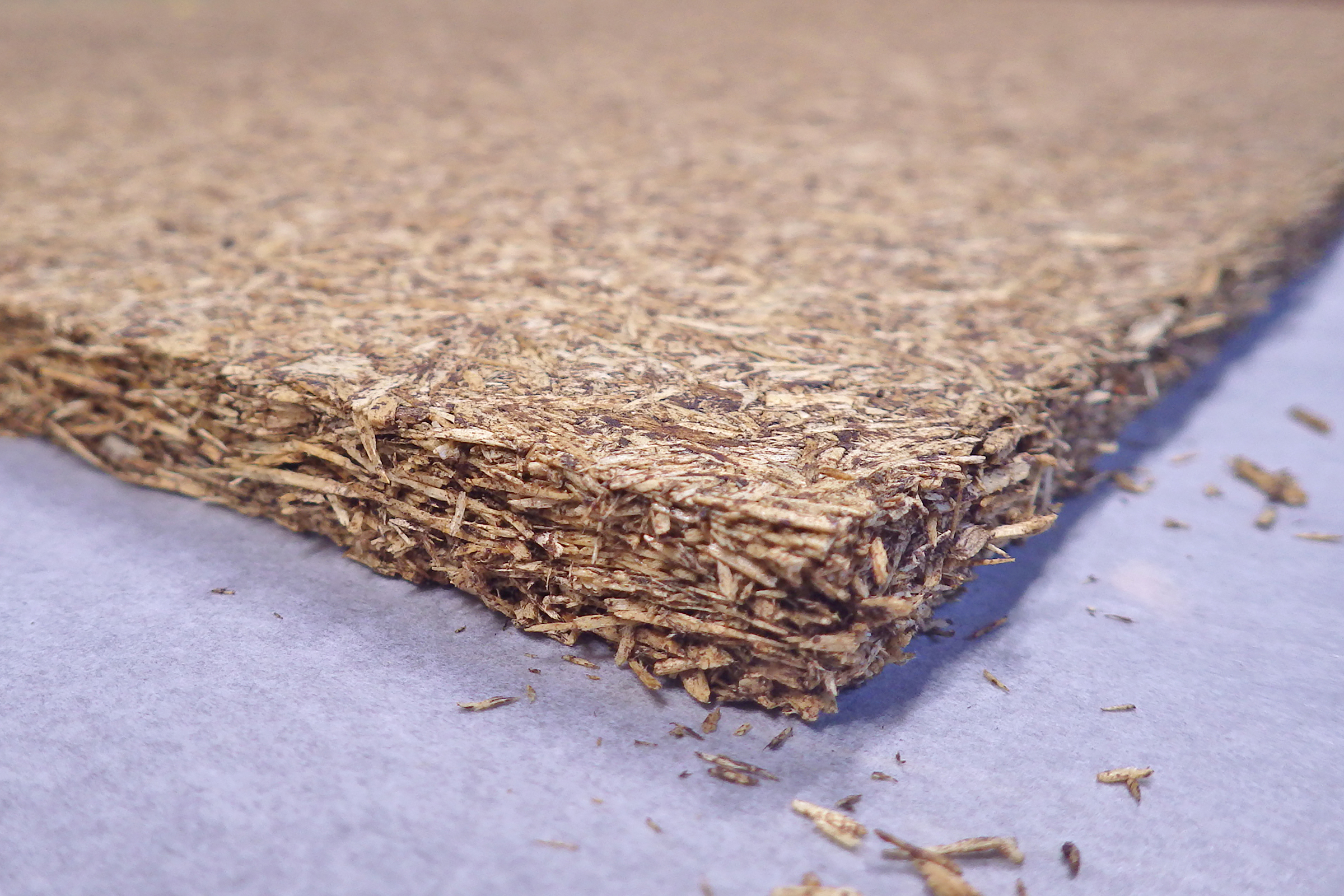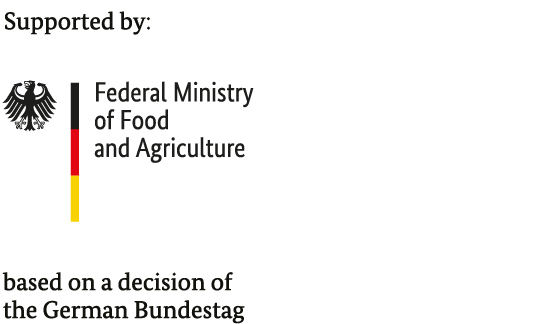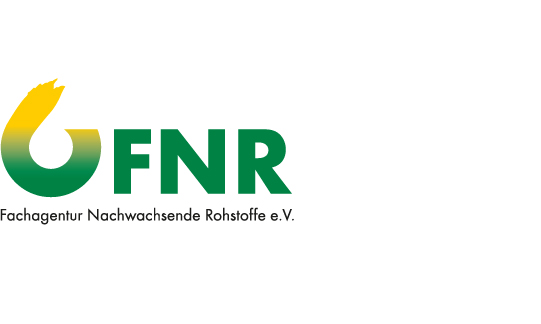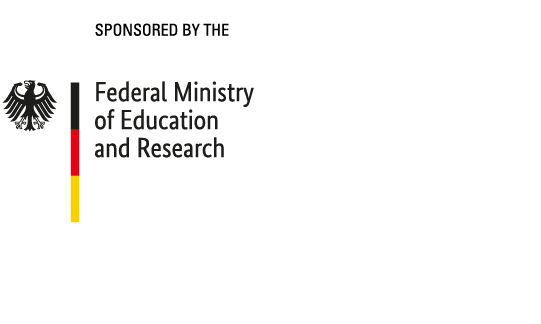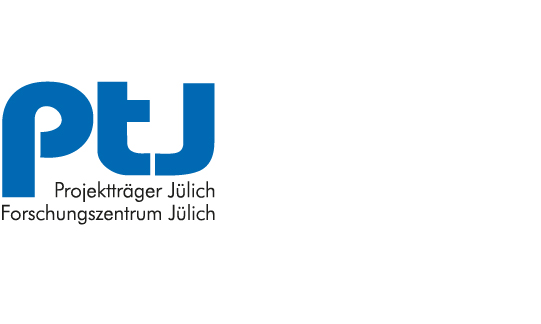Hannover Messe: BMEL and BMBF present research highlights from the Fraunhofer WKI in the “Bioeconomy Showcase”
Two research highlights from the Fraunhofer WKI will be on display at the Hannover Messe from the 22nd to the 26th of April 2024 in the “Schaufenster Bioökonomie” (Bioeconomy Showcase): thermal-insulation bricks filled with beech-wood fibers and a formaldehyde-free bio-adhesive for the production of wood-based materials. The “Bioeconomy Showcase” is a joint stand operated by Project Management Jülich (PtJ) and the Fachagentur Nachwachsende Rohstoffe e. V. (FNR). Research results from current bio-economy projects funded by the German Federal Ministry of Food and Agriculture (BMEL) and the German Federal Ministry of Education and Research (BMBF) will be presented here.
Climate change, the overexploitation of resources, and international dependencies in the supply of raw materials as well as a growing world population present major challenges for politics, business and society. In addition to the energy and agricultural transition, a raw-materials transition and resilient systems that guarantee Germany’s security of supply are also required in order to overcome the current crises. An important contribution to this is provided by the circular bio-economy, which relies on a circular economy and renewable instead of fossil raw materials.
The Fraunhofer WKI is supporting the transformation towards a post-fossil economy with diverse research and development projects. Two current projects with high market potential can be seen in the “Bioeconomy Showcase”.
What can be done with all the beech wood that will be increasingly available in the future due to climate change?
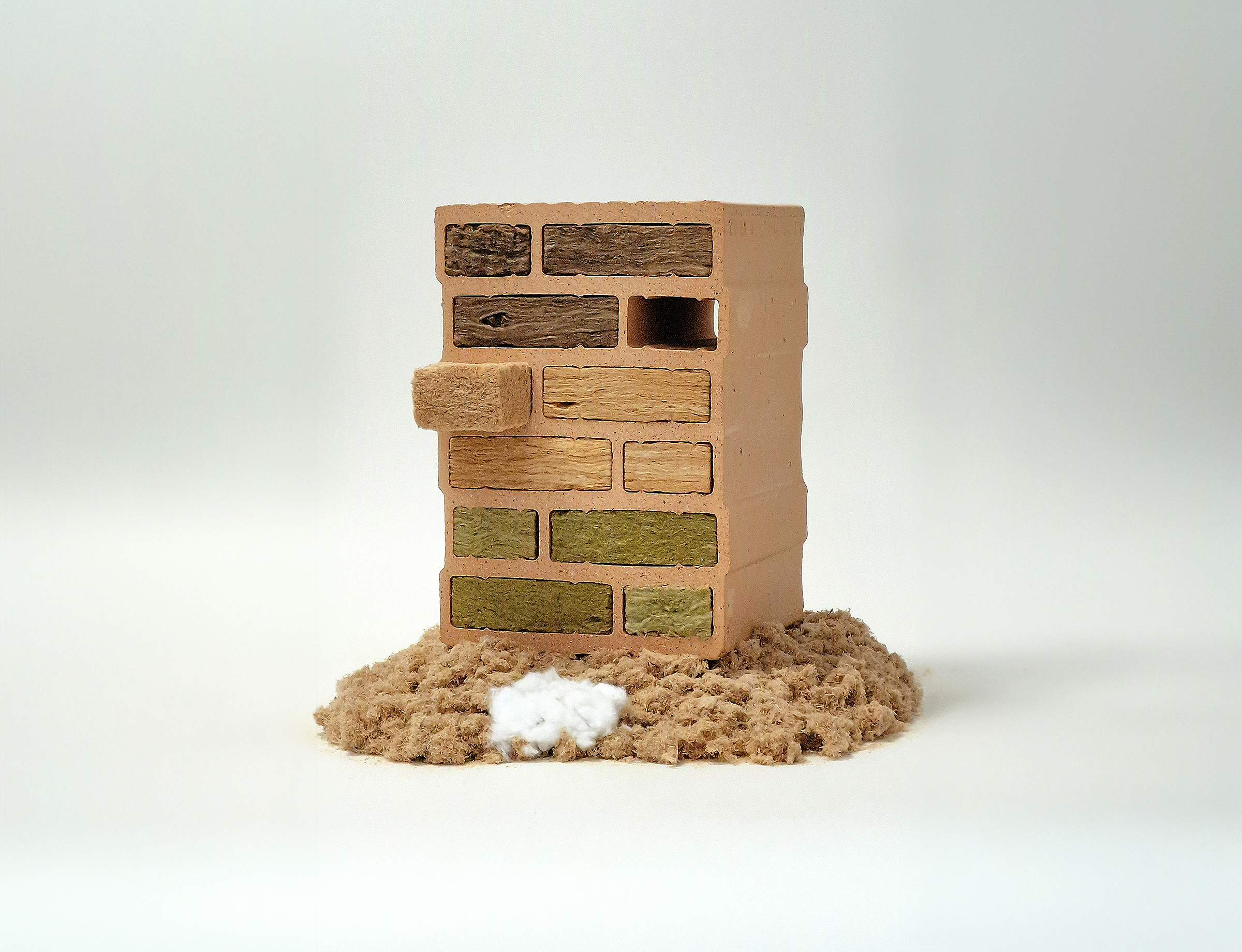
In a current research project, researchers at the Fraunhofer WKI are investigating how beech wood, which will be increasingly available in the future as a result of climate change, can be used to produce wood-fiber insulation materials. The researchers are developing processes to break down the beech wood into fibers and wood foam or wood-foam granules. Amongst other things, low-value damaged wood is also to be thereby utilized. The aim is to create sustainable and economically attractive insulation solutions for the construction industry. At the Hannover Messe, one possible application will be presented in the “Schaufenster Bioökonomie”: Thermal-insulation bricks made from hollow bricks filled with insulation mats made from beech-wood fibers.
Industrial partners will test the practical suitability of the insulation materials developed at the Fraunhofer WKI. One project goal with the project partner Loick Biowertstoffe GmbH is to set up a pilot plant for the production of beech-wood fiber insulation mats, which will be developed and optimized within the project based on the example of the brick filling.
For the production of the wood foams, the researchers employ a process developed at the Fraunhofer WKI. In order to produce wood-foam granules, the manufactured wood foams are subsequently broken down into granules using various crushing units and, if necessary, additionally hydrophobized. The goal is a pourable material that can be utilized for the filling of the bricks.
In collaboration with the brick company Ziegelwerk Bellenberg Wiest GmbH & Co. KG, the researchers are investigating not only the fire behavior but also the recyclability of the insulation-filled bricks.
Wood-based materials are a sustainable building material for houses, furniture, vehicles and much more. How can they be made even more sustainable?
Using a wood-based panel for interior construction, researchers from the Fraunhofer WKI will be demonstrating the application possibilities for a newly developed, formaldehyde-free bio-adhesive. Compared to the phenol-formaldehyde resins often used until now, the new lignin-HMF resin is harmless to health and free of petrochemical raw materials. In the “Schaufenster Bioökonomie” (bio-economy showcase), the researchers will present a 100 percent bio-based condensation resin for the wood-based materials industry that can be manufactured and processed using conventional process technology and plant engineering.
During the development of the adhesive, the researchers at the Fraunhofer WKI worked in collaboration with the Argentinian Instituto de Materiales de Misiones (IMAM). As regionally available production residues are used in production, the research team has succeeded in creating a sustainable and economically attractive solution for the manufacture of wood-based materials.
With the newly developed lignin-HMF resin, which is not harmful to health, the advantages of sustainable wood-based materials are expanded even further. Thanks to the completely bio-based alternative to petrochemical condensation resins, the wood-based materials industry will become less dependent on fossil raw materials. Furthermore, the avoidance of formaldehyde in resin production means that wood-based materials now contain only extremely low levels of formaldehyde, which occurs naturally in wood. For the transition of adhesives and wood-based materials production to the new bio condensation resins, high investment costs are not incurred. The wood-based materials industry is therefore provided with an economically attractive possibility for fulfilling legal requirements and increasingly stringent customer demands in terms of sustainability and health protection whilst simultaneously providing a contribution towards the bio-economy.
Last modified:
 Fraunhofer Institute for Wood Research
Fraunhofer Institute for Wood Research 